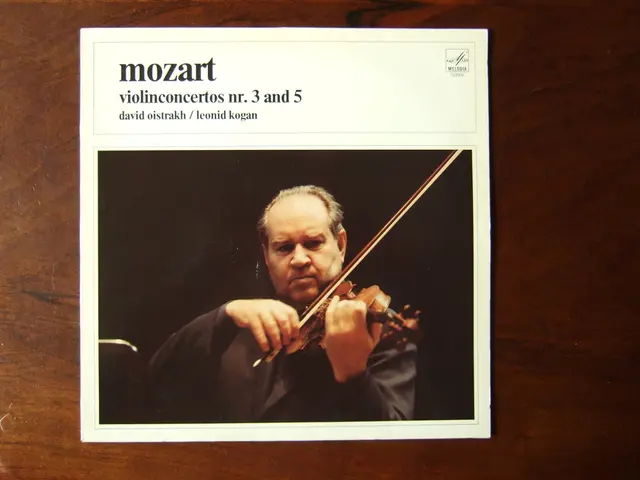Discharge Yourself from Emotional Baggage: Eliminate Drama and Excessive Rumination
Emotional fasting is a self-help strategy that aims to reset the nervous system, reduce mental clutter, and reclaim emotional clarity. Unlike emotional suppression, emotional fasting gives space to feel intentionally and process at one's own pace.
This practice involves intentionally refraining from engaging with certain emotional triggers, thoughts, or reactions for a set period, much like food fasting involves abstaining from eating. By doing so, emotional fasting helps reduce mental clutter by giving the mind a break from repetitive, overwhelming, or negative emotional stimuli, promoting emotional clarity and better mental focus.
The Power of Emotional Fasting
Taking a 24-hour emotional fast can be a powerful tool for emotional healing and decluttering the mind. Techniques supporting emotional fasting include mindfulness practices, journaling feelings without judgment, taking breaks to shift focus, and selectively discussing problems for resolution rather than reinforcement.
These approaches parallel physical fasting’s benefits by “refreshing” the mind and body to function more effectively. While direct scientific studies specifically labeling "emotional fasting" are limited, the concept overlaps with recognized psychological strategies like mindfulness meditation, cognitive reframing, and intentional pauses from emotional stressors.
Emotional Nourishment
While abstaining from emotional triggers, it's crucial to engage in emotional nourishment activities. These include journaling thoughts without judgment, taking long nature walks, listening to calming instrumental music, practicing prayer or focused breathwork, and engaging in creative flow activities like drawing or slow cooking.
A Rebellious Act in a Noisy World
In a society that thrives on noise, opinions, and emotional reactivity, emotional fasting can be a rebellious and healing act. The idea of emotional fasting is inspired by several wellness concepts, including religious fasting, digital detoxing, mental minimalism, and dopamine detoxing.
Practicing Emotional Fasting
To practice emotional fasting, one must identify emotional triggers, create an emotional fasting plan, and engage in emotional nourishment activities. Misuse of emotional fasting can lead to common traps such as going too extreme, treating fasting as escapism, skipping nourishment, and doing it alone.
Emotional fasting helps build emotional resilience over time and can help with anxiety or burnout by reducing overstimulation and supporting nervous system healing. Overexposure to emotional stimuli activates the amyggala, the brain's fear and threat center, leading to an amyggala hijack which keeps one in a fight-or-flight state.
For those seeking guidance on emotional fasting, a free guide on "Emotional Reset Rituals for Overthinkers" is available for subscribing to the newsletter. Emotional fasting is a mindful break from emotionally triggering inputs to help the mind and heart reset, promoting emotional clarity and better mental focus.
- Emotional fasting, a strategy aimed at resetting the nervous system and reducing mental clutter, can be an effective tool for emotional healing, much like physical fasting benefits the body.
- To effectively practice emotional fasting, one should identify emotional triggers, create an emotional fasting plan, and engage in emotional nourishment activities such as journaling, nature walks, or prayer.
- Engaging in emotional nourishment activities is vital during emotional fasting to avoid common traps like skipping nourishment or using it as escapism.
- Emotional resilience can be built over time through emotional fasting, which helps with anxiety or burnout by reducing overstimulation and supporting nervous system healing.
- In a noisy world that thrives on emotional reactivity, emotional fasting can be a rebellious and healing act, inspired by various wellness concepts like digital detoxing, mental minimalism, and dopamine detoxing.
- Taking a 24-hour emotional fast can promote emotional clarity, better mental focus, and parallel the physical benefits of fasting in refreshing the mind and body.
- Education and self-development through resources like the free guide on "Emotional Reset Rituals for Overthinkers" can provide valuable guidance for those interested in emotional fasting as part of their mental-health, health-and-wellness, education-and-self-development journey, contributing to personal-growth.








